Vocation NCERT Solutions | English Santoor Class 5 - New NCERT PDF Download
| Table of contents |

|
| Let us Think (Page 108) |

|
| Let us Learn (Page 109) |

|
| Let us Listen (Page 112) |

|
| Let us Speak (Page 112) |

|
| Let us Write (Page 114) |

|
Let us Think (Page 108)
A. Answer the following questions
Q1: Who is the speaker in the poem?
Ans: The speaker in the poem is a young child.
Q2: Why does the speaker want to be a hawker?
Ans: The speaker wants to be a hawker because the hawker is free to spend the day on the road, with no fixed schedule or rules to follow.
Q3: What does he like about the gardener?
Ans: The speaker likes that the gardener can dig freely with his spade, soil his clothes, and work without anyone scolding him, even if he gets wet or sunburned.
Q4: What does the speaker compare the street lamp to?
Ans: The speaker compares the street lamp to a giant with one red eye in its head.
Q5: On the basis of the poem that you have read, share the daily schedule of the speaker.
Ans: The speaker’s daily schedule is:
- At 10 in the morning, the speaker walks to school and sees the hawker.
- At 4 in the afternoon, the speaker returns from school and sees the gardener.
- In the evening, when it gets dark, the speaker is sent to bed and sees the watchman.
B. Think and discuss
Q1: Why does the speaker admire people with different vocations?
Ans: The speaker admires people with different vocations because they seem free to do what they like without strict rules or schedules, unlike the speaker’s own routine.
Q2: What are the things that you observe on your way to school and your way back home?
Ans: On my way to school and back home, I observe trees, birds, street vendors, other students, vehicles, and shops along the road.
Let us Learn (Page 109)
A. Match the words with their meanings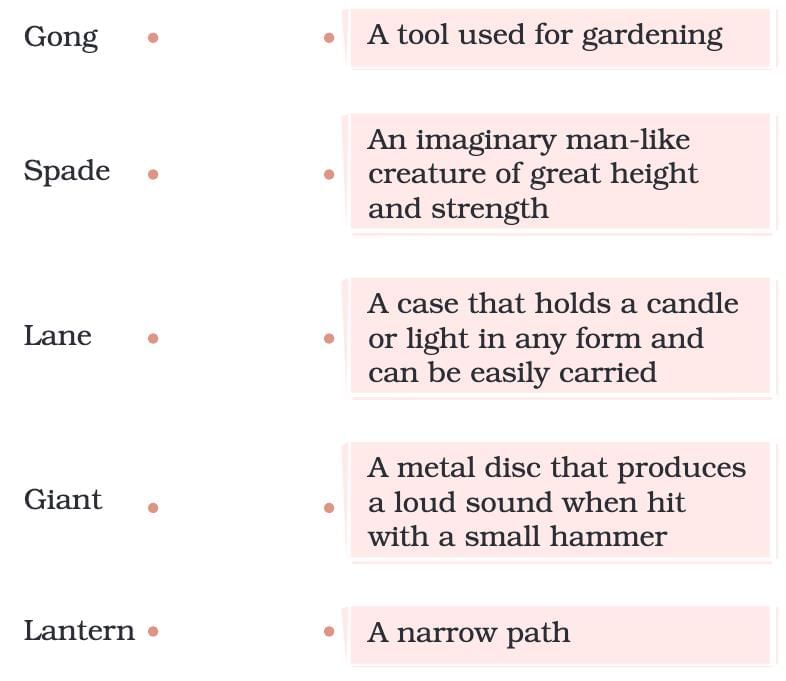
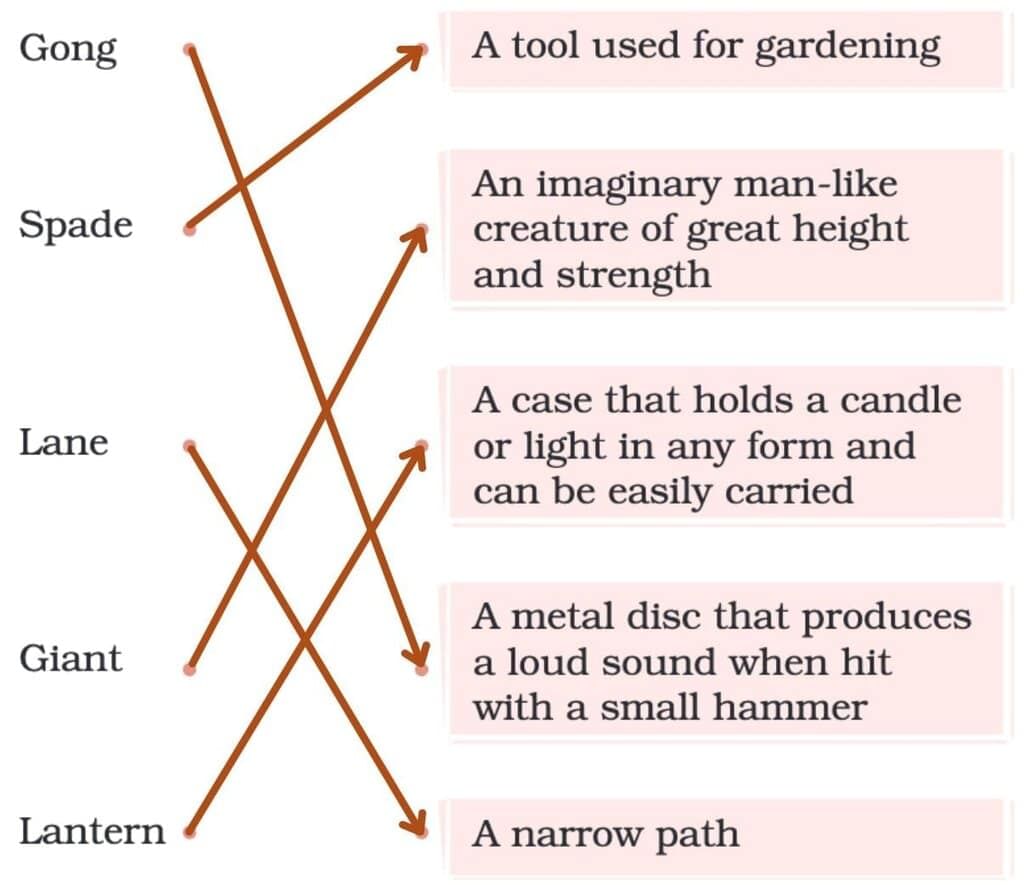
B. There is one mistake in each sentence given below. Underline the mistakes and rewrite the correct sentences in the given space. One example has been done for you.
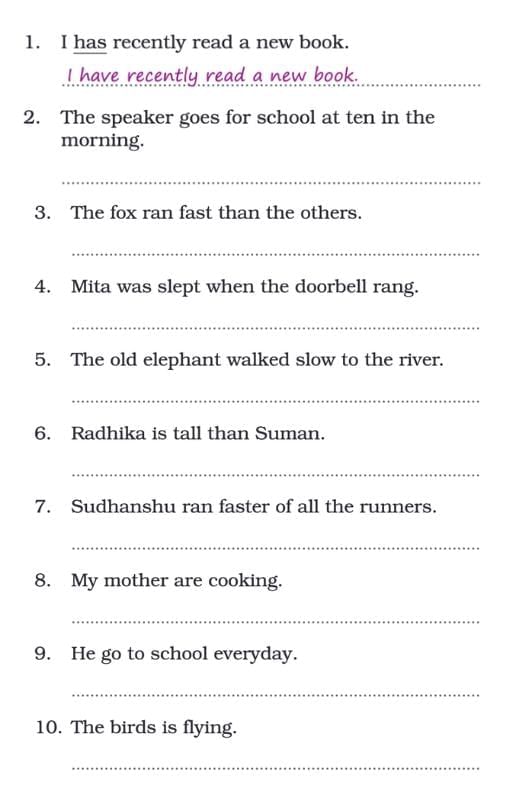 Ans:
Ans: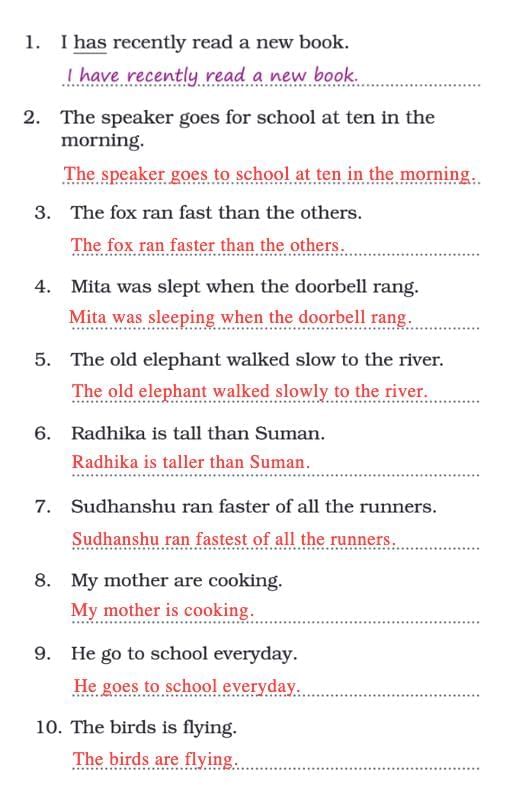 C. Look at the pictures and read the words written under them.
C. Look at the pictures and read the words written under them.
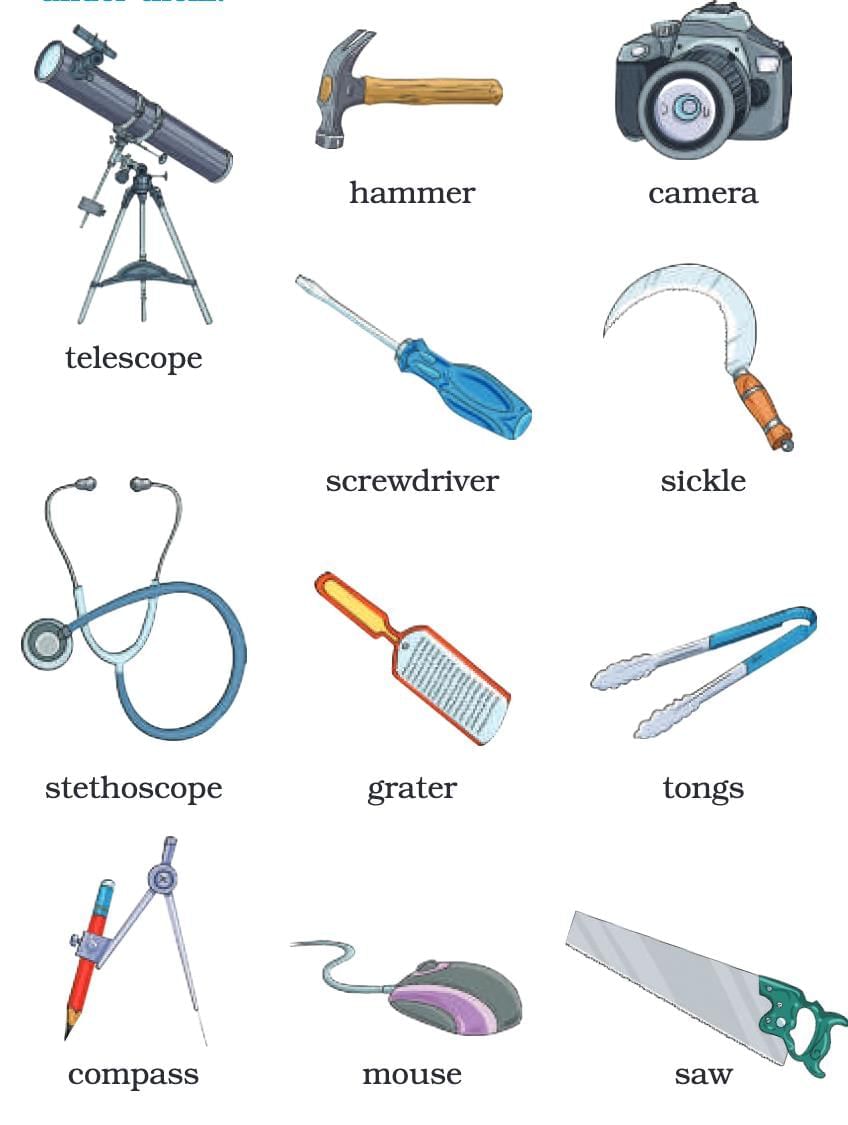
1. Hammer: Seen in homes or workshops. Used to drive nails into wood or break things.
2. Camera: Seen at home or with photographers. Used to take pictures or videos.
3. Screwdriver: Seen in toolkits or repair shops. Used to tighten or loosen screws.
4. Sickle: Seen with farmers or in fields. Used to cut crops or grass.
5. Stethoscope: Seen in clinics or with doctors. Used to listen to heartbeats or breathing.
6. Grater: Seen in kitchens. Used to shred vegetables or cheese.
7. Tongs: Seen in kitchens or at barbecues. Used to pick up hot or small items.
8. Compass: Seen in schools or with navigators. Used to draw circles or find directions.
9. Mouse: Seen with computers. Used to control the cursor on a screen.
10. Saw: Seen in carpentry shops or homes. Used to cut wood or metal.
Let us Listen (Page 112)
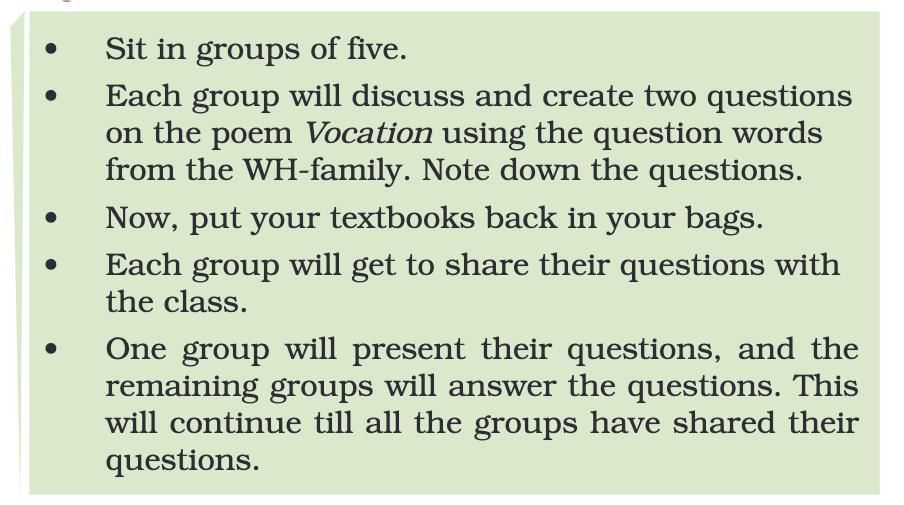
Discuss in groups, write two WH-questions, and share with the class.
Example questions:
1. What does the speaker see on the way to school in the morning?
2. Why does the speaker wish to be a watchman?
Discuss in groups, write two WH-questions, and share with the class.
Let us Speak (Page 112)
A. Listen and repeat.
Your teacher will say aloud the following words. Listen carefully and repeat after the teacher.


B. Listen and Repeat
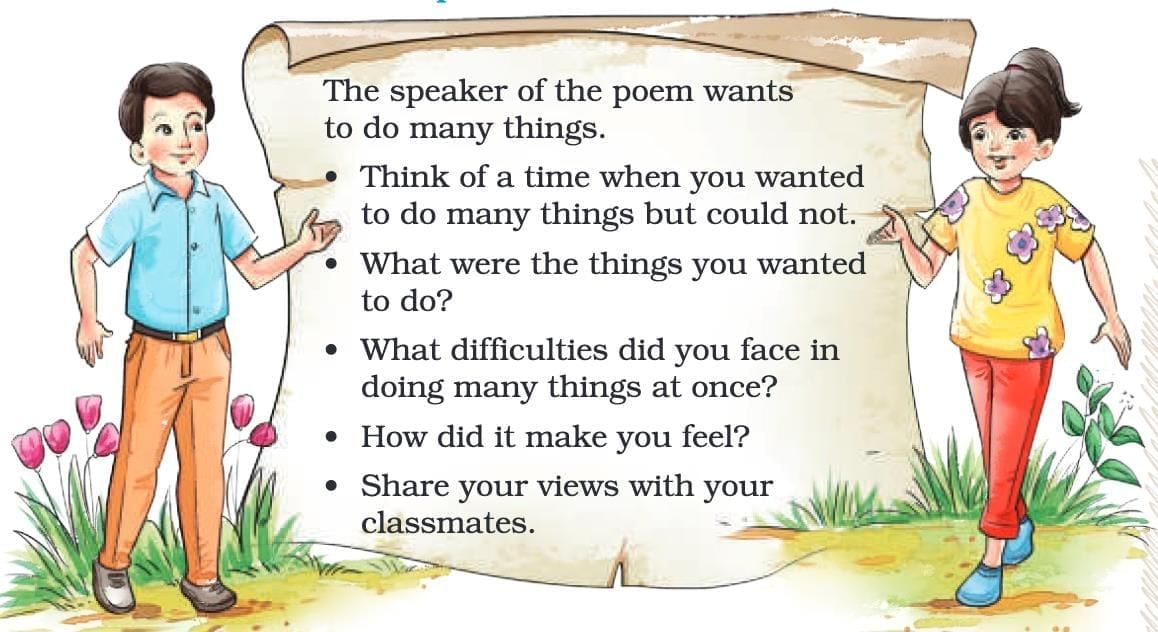
Let us Write (Page 114)
Being a hawker, gardener, or watchman looks fun, but each job has tough parts. A hawker walks all day, carrying heavy bangles, and might not sell enough to earn money. A gardener works in the hot sun or rain, which can make them tired or sick. A watchman stays awake all night, feeling lonely in the dark, and it’s hard to sleep at night. These jobs need hard work and patience.

Mother: My mother is a teacher. She teaches young children how to read, write, and solve math problems. Every day, she prepares lessons, checks homework, and helps students learn new things. She loves seeing her students smile when they understand something new. Her job is rewarding but tiring because she works hard to make lessons fun and clear.
Father: My father is a shopkeeper. He runs a small grocery store in our town. He opens the shop early, arranges goods, and helps customers find what they need. He works long hours to keep the shop clean and stocked. His job is busy, but he enjoys meeting people and providing essentials to the community.
Grandmother: My grandmother is a homemaker. She manages our home by cooking meals, cleaning, and taking care of the family. She grows vegetables in our garden and knits sweaters for us. Her work is unpaid but important, as she keeps our home warm and happy. She loves caring for us every day.
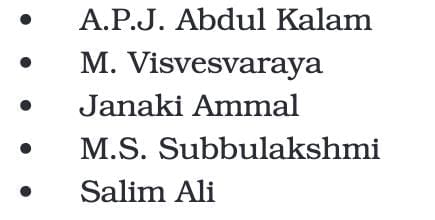
1. A.P.J. Abdul Kalam: Scientist and Former President
2. M. Visvesvaraya: Engineer
3. Janaki Ammal: Botanist
4. M.S. Subbulakshmi: Classical Singer
5. Salim Ali: Ornithologist (Bird Scientist)
|
40 videos|659 docs|63 tests
|
FAQs on Vocation NCERT Solutions - English Santoor Class 5 - New NCERT
| 1. What is the importance of vocational education for students? |  |
| 2. How can students choose the right vocation for themselves? |  |
| 3. What are some common vocational courses available for students? |  |
| 4. How does vocational training differ from traditional education? |  |
| 5. What role do internships play in vocational education? |  |















